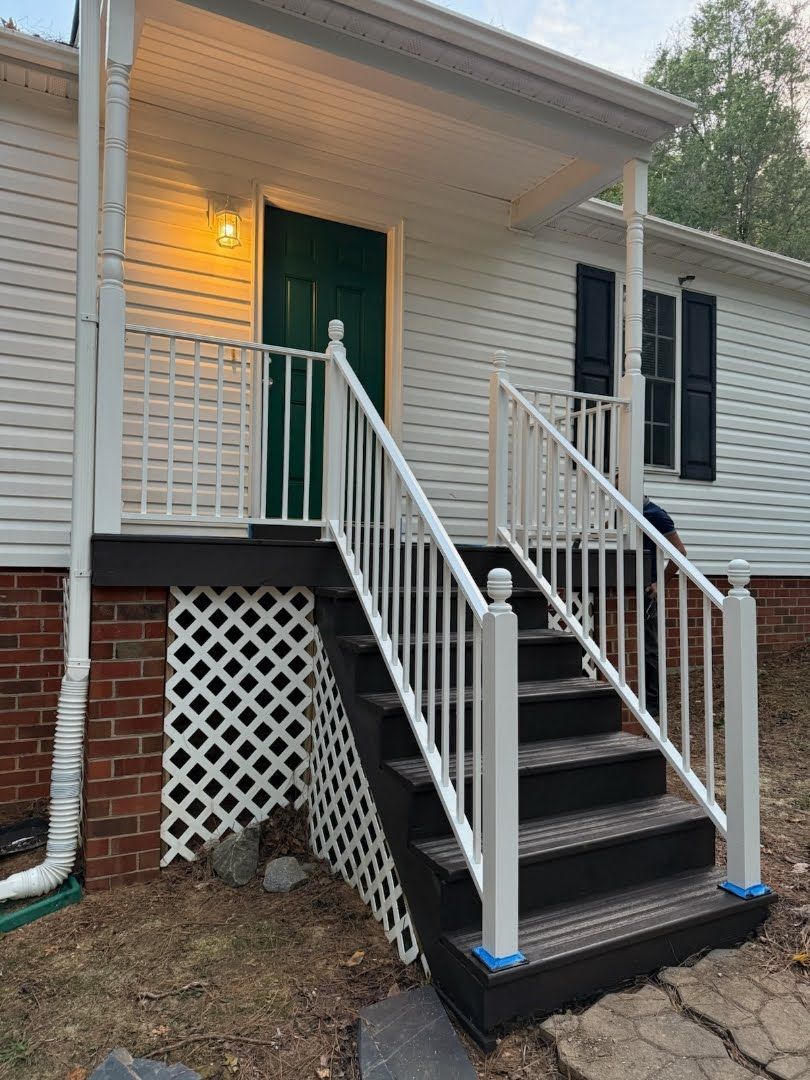Sell My House Fast in RVA: What to Expect from a Cash Buyer
Selling a house can be a complex and time-consuming process, especially if you’re looking to sell quickly. But, in Richmond, Virginia, selling to a cash buyer is one of the fastest and simplest ways to get your property off the market. Understanding how the cash sale process works and what to expect can make the experience smoother and help you make the best decision for your unique situation.
In this article, we'll dive into what the process of selling your home to a cash buyer looks like, its advantages, and what you can expect when working with a reputable homebuying company like WeBuyHousesRVA.com.
Why Sell My House for Cash?
Selling to a cash buyer is often preferred for homeowners who want to close quickly without dealing with the hassles of traditional listings, inspections, and potential buyer negotiations. Here’s why people consider a cash sale:
- Speed: Cash sales can close in a matter of days to weeks, not months.
- Certainty: Cash sales are less likely to fall through, as there are no loan approvals or contingencies.
- Convenience: Selling for cash allows you to skip repairs, clean-up, and staging that are typical of conventional sales.
- Reduced Stress: Cash sales are straightforward and eliminate much of the typical house-selling stress.
These reasons make cash sales appealing to those who need a quick solution, like relocating for work, facing foreclosure, or handling a property in probate.
What Does the Cash Sale Process Look Like?
If you’re considering selling your house to a cash buyer in Richmond, VA, here’s a breakdown of the steps you can expect in the process:
1. Initial Contact and Property Information
The first step is contacting a cash buying company, like WeBuyHousesRVA.com. During this initial contact, you'll provide basic details about your property, such as the location, size, and any unique aspects or challenges it may have. This information helps the buyer evaluate the property and decide whether it fits their purchasing criteria.
2. Property Evaluation and Offer Calculation
After gathering some initial information, the cash buyer will typically schedule a property evaluation. They’ll look at aspects such as the property's condition, neighborhood trends, and potential resale value. Based on this assessment, they’ll make an offer. This offer is often based on the "as-is" value, meaning they’ll consider the cost of repairs and renovations in the offer amount.
3. Receiving a No-Obligation Cash Offer
Once the property evaluation is complete, you’ll receive a cash offer from the buyer. It’s important to know that this offer is usually given “as-is,” meaning you don’t have to worry about costly repairs, cleaning, or upgrades. Cash offers are typically lower than traditional market value but compensate for this by providing you with the benefits of speed and convenience. With reputable companies, this offer is no-obligation—meaning you can walk away if it doesn’t meet your expectations.
4. Reviewing the Offer
Take some time to consider the offer and review any questions or concerns with the buyer. A reputable cash buyer will be transparent about how they arrived at the offered amount and will be happy to discuss any factors affecting it.
5. Closing the Deal
Once you’ve accepted the offer, the cash buyer handles the closing process. Closing typically happens within days or weeks, depending on your timeline and needs. At closing, the title company (or attorney) manages the paperwork, including the deed transfer and payment details. After all the documents are signed, you’ll receive the full cash payment.
Benefits of Selling to a Cash Buyer in RVA
Selling to a cash buyer in Richmond has some unique advantages:
1. Quick Sale Timeline
Cash sales usually close in a fraction of the time compared to traditional real estate transactions, which can take 45 to 60 days or longer. This fast timeline can be a lifesaver for sellers facing a job relocation, divorce, or an impending foreclosure.
2. No Repairs or Cleaning Required
When selling to a cash buyer, you don’t need to make any repairs or even clean up. Cash buyers are prepared to purchase homes “as-is,” which means they’ll take the property in any condition. This can save you significant time and money on renovations and staging.
3. Minimal Paperwork
Traditional real estate transactions can involve a mountain of paperwork. Selling to a cash buyer minimizes the amount of documentation you’ll have to sign. Companies like WeBuyHousesRVA.com streamline the paperwork process, which means less hassle for you.
4. Certainty of Sale
With traditional sales, there’s always the risk that a buyer’s financing could fall through. A cash buyer has the funds available upfront, eliminating the uncertainty of loan approval or other financing-related delays.
5. Avoiding Agent Commissions
Selling your house through a real estate agent often involves paying a 5-6% commission. In a cash sale, this commission is usually avoided, allowing you to keep more of your sale proceeds.
What to Look for in a Reputable Cash Buyer
While selling your home for cash has many benefits, it’s essential to work with a reputable cash buyer to ensure a positive experience. Here’s what to look for when selecting a cash buyer:
1. Transparency and Communication
A trustworthy cash buyer will be upfront about their process, offer calculation, and closing timeline. They should provide clear answers to any questions you have and keep you informed at each stage of the sale.
2. No Pressure
A reliable cash buyer will offer you the flexibility to make the best choice for your needs. They won’t pressure you into accepting an offer or rush you through the process.
3. Proof of Funds
A legitimate cash buyer will have the funds available to make the purchase. Ask to see a proof of funds letter to ensure they have the financial means to buy your home.
4. Positive Customer Reviews and Reputation
Check online reviews and testimonials to gauge past clients' experiences. A reputable cash buying company should have positive feedback and a good standing in the Richmond community.
5. Clear Terms
A transparent cash buyer will provide all the terms upfront without hidden fees or ambiguous clauses. Make sure you understand the terms before signing any contracts.
Is Selling to a Cash Buyer Right for You?
Selling your house for cash in Richmond, VA, offers an excellent alternative to the traditional real estate market, especially if you’re looking to sell quickly or avoid the costs and time associated with preparing a home for sale. Be sure to work with a reliable local cash buyer like our homebuying company based in Richmond, VA. Companies like ours allow you to move forward without the stress of staging, repairs, and prolonged market exposure.
If you're considering a quick and straightforward sale in RVA, a cash buyer could be just the solution you need. With no hidden fees, flexible closing dates, and an “as-is” purchase policy, WeBuyHousesRVA.com is here to make your home-selling experience easy and stress-free. Contact us today to learn more and get a no-obligation offer on your property.
You might also like
Blog





